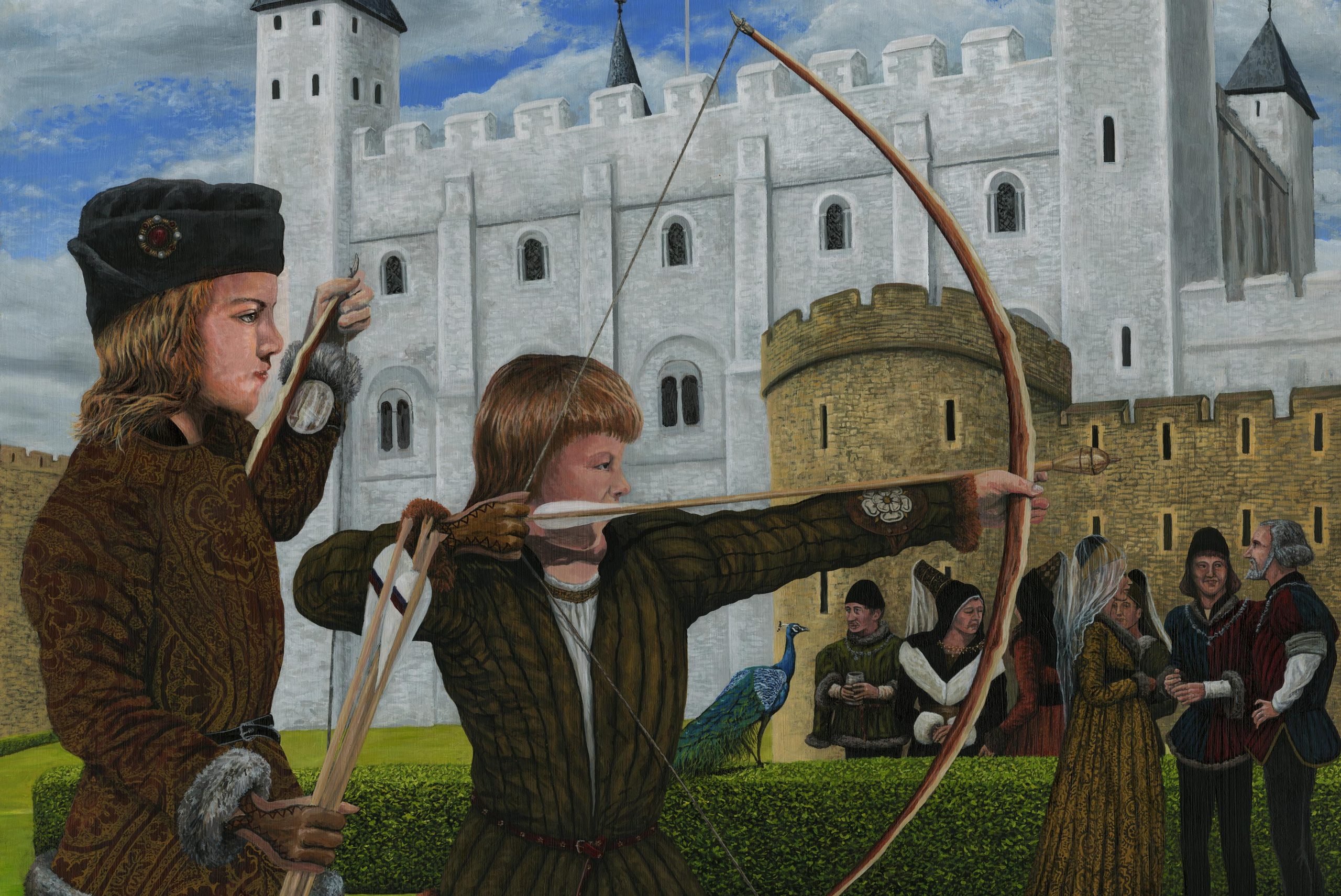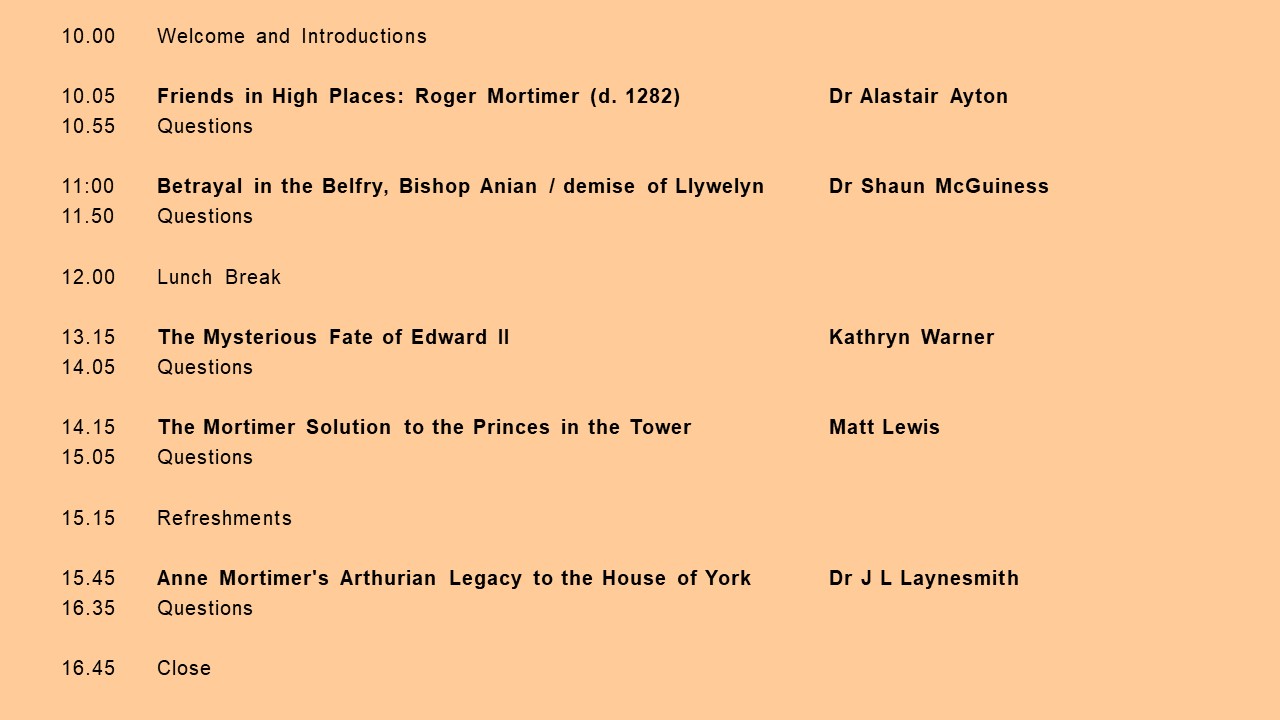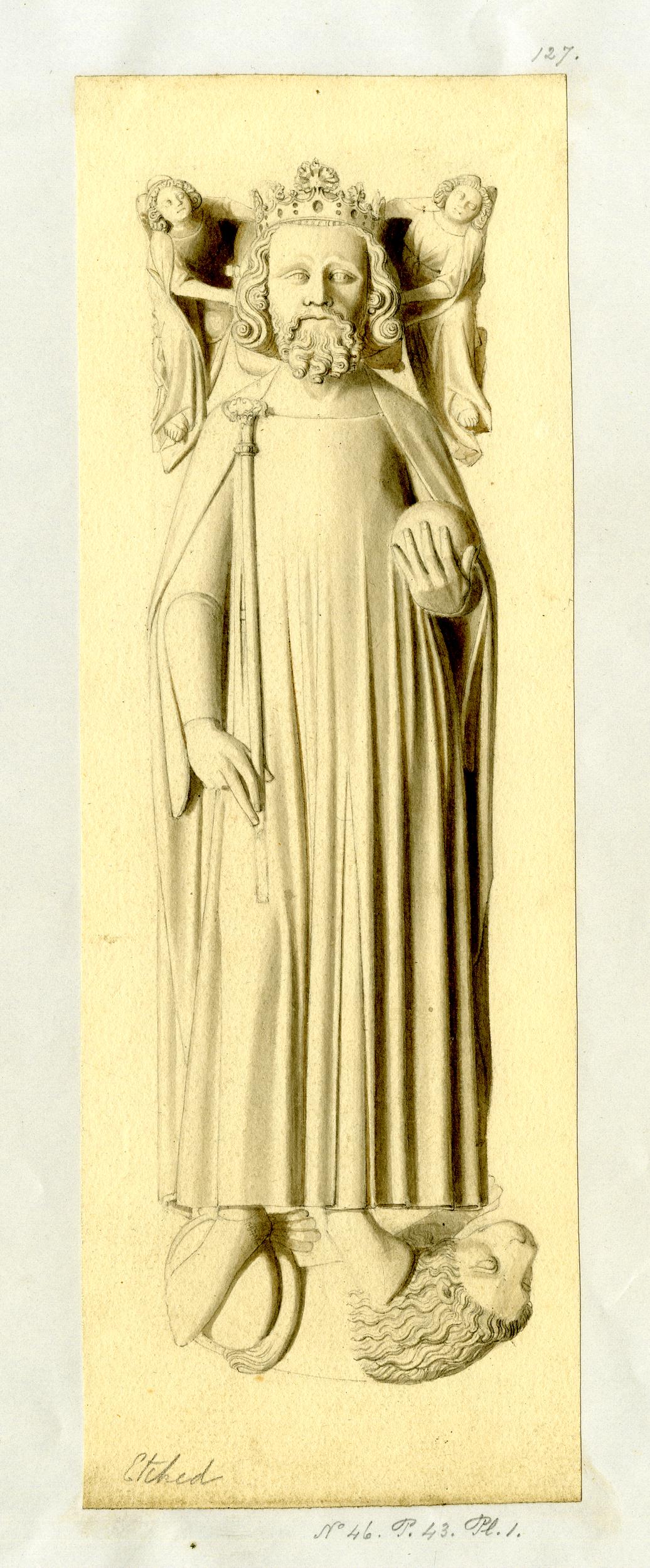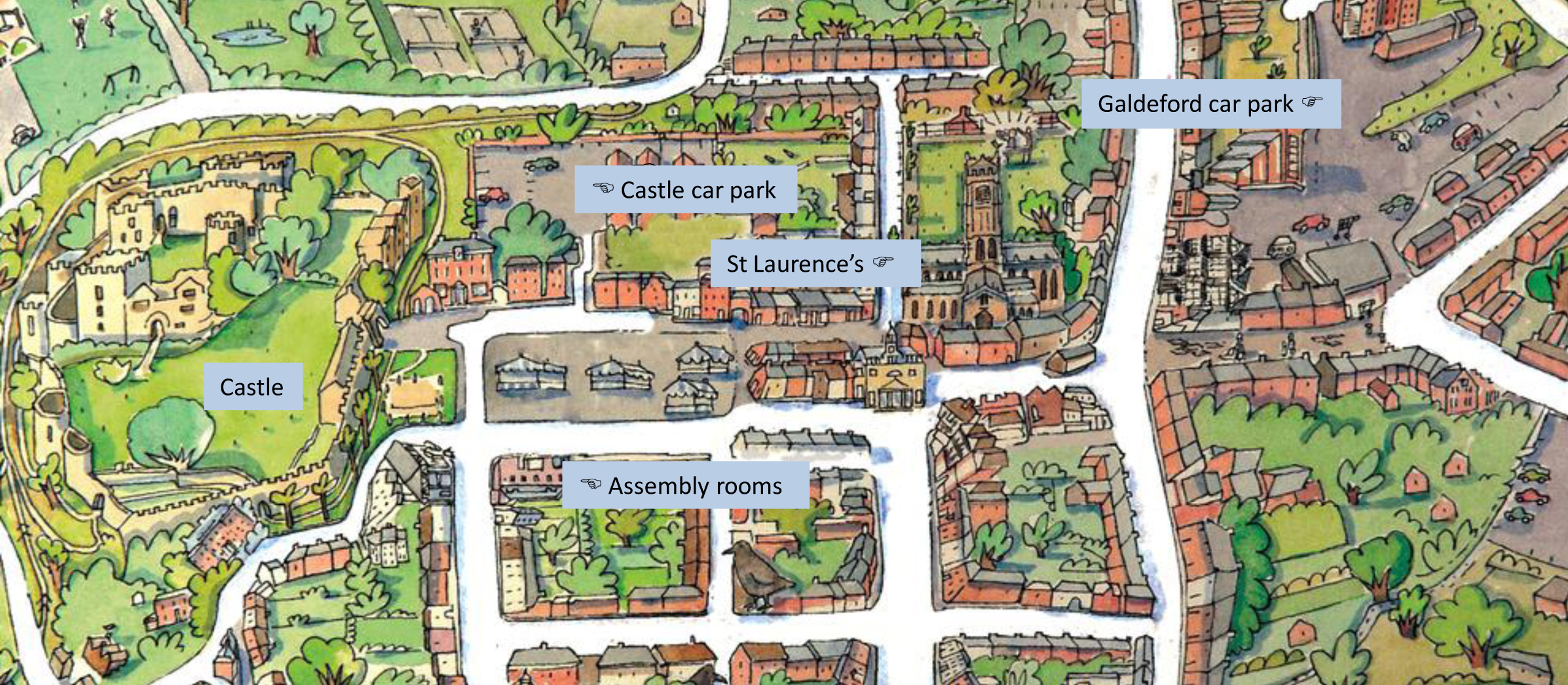Autumn Symposium 2023
A One-Day Symposium
Date
Saturday 7th October 2023
Venue
Ludlow Assembly Rooms
1 Mill Street, Ludlow SY8 1AZ
Parking
For full details follow this link ☛☛

© Matt Ryan for the Richard III Society
Programme, Synopses and Biographies

Tickets
Attend in Person
Society Members: £21.50
Non-Members: £27.50
Attend Remotely via Zoom
Society Members: £12.00
Non-Members: £15.00
Online Booking
By telephone
0333 666 3366
(£2 booking fee)
By cheque
Make out to Mortimer History Society and post to Philip Hume, Waterloo Lodge, Orleton Common, SY8 4JG including contact details and names of all attending participants

© The Trustees of the British Museum
Dr Alastair Ayton – Friends in High Places: Roger Mortimer (d. 1282), lord of Wigmore, and the Lord Edward in the reign of Henry III
Despite the academic attention afforded certain members of his family, Roger Mortimer (d. 1282) has very rarely been (with few notable exceptions) the subject of detailed study. This is all the more surprising given Roger’s centrality in the making of his family’s fortunes; from prominent regional powerbrokers to figures of much wider territorial and political significance. This paper looks afresh at the career of Roger Mortimer, lord of Wigmore, drawing especial attention to the nature and development of his association with Lord Edward, the future Edward I, and to his rise in the estimations of the English crown. It will focus upon Roger’s royal service, whereby he fulfilled vital roles both within the Welsh March and beyond, at a time of noticeable conflict and change. Roger’s sustained good service resulted in him and other prominent Mortimers repeatedly receiving and benefitting greatly from royal patronage. These awards are reconsidered here, with particular attention given to Lord Edward’s and Henry III’s policy of land grants to the Mortimers in both England and the March, which, it will be argued, formed part of a wider royal strategy towards the region and its lords in the second half of the thirteenth century.
Dr Alastair Ayton graduated from the University of St Andrews in December 2020, having successfully defended his PhD thesis (‘Politics, Policy and Power: the Marcher Lords and the English Crown in the March of Wales, 1254-1272’). He is currently working on several publications, including the unenviable yet exciting task of transforming his thesis into a book. He is associate editor of the Journal of the Mortimer History Society and is a regular contributor to the MHS, of which he has been a member since February 2021.’’
Dr Shaun McGuiness – ‘Betrayal in the Belfry – Bishop Anian and the demise of Llywelyn the Last.’
An intriguing entry in the Welsh ‘Chronicle of the Princes’, Brut y Tywysogion, for the year 1282, reads:
‘And then was effected the betrayal of Llywelyn in the belfry at Bangor by his own men.’
The Prince of Wales, Llywelyn ap Gruffudd, was killed on 11 December 1282, and there has been much speculation as to who might have been involved in bringing about his death.
The bishop of Bangor at the time was Anian, and he was not only a member of Llywelyn’s council, he was also the prince’s confessor. However, original letters of his now in the National Archives at Kew reveal an intense animosity towards to Llywelyn in the years and months leading up to the prince’s murder.
By analysing Anian’s extant letters and other contemporary evidence, this talk will consider if the bishop of Bangor had a role to play in the betrayal, and ultimate death, of the Prince of Wales.
Dr Shaun McGuinness’s research is concerned with medieval Wales. His MA dissertation entitled ‘Arbitration and Dispute Resolution in Wales during the Age of the Princes’ combined medieval Welsh law and history. His doctoral thesis (2021) includes a first edition of Bangor Episcopal Acta, 1092-1306, together with biographies of the ten bishops who held office during that period, and an examination of the medieval diocese. The edition is to be published by the Canterbury and York Society. As well as several forthcoming book chapters and articles, as an Honorary Research Associate at Bangor University, he is compiling an edition of episcopal acta for the twelfth- and thirteenth-century bishops of St Asaph.
Kathryn Warner – The Mysterious Fate of Edward II
Edward II’s death by red-hot poker at Berkeley Castle in 1327, a few months after Roger Mortimer of Wigmore played a vital role in his abdication, is one of the most famously lurid tales of English history. For centuries, people rarely questioned the notion that Edward died at Berkeley, but since the discovery of two remarkable letters, an alternative narrative has presented itself: that the former king escaped from captivity and ended up in an Italian hermitage. In 1329/30, it is beyond doubt that a number of influential people, including Edward’s half-brother the earl of Kent, the archbishop of York, and the bishop of London, believed that he was alive and tried to free him. This talk presents the evidence that Edward II did die in 1327 and the evidence that he did not, and reveals that the ultimate fate of this most unsuccessful of kings is far more intriguing than usually supposed.
Kathryn Warner grew up in the Lake District, and holds two degrees in medieval history from the University of Manchester. She is the author of many books on fourteenth-century history, including biographies of Edward II, Isabella of France, Hugh Despenser the Younger and Philippa of Hainault.
Matt Lewis – The Mortimer Solution to the Princes in the Tower
Matt Lewis explores the lives of two young boys in the aftermath of a dynastic change that removed them from the line of succession. The boys were Edmund and Roger Mortimer, and their story began in 1399. Their fates offer a new perspective on the strikingly similar events of 1483. Can two Mortimer boys help to come closer to resolving one of history’s greatest cold cases: the Princes in the Tower?
Matt Lewis is an author and historian, Senior Presenter at History Hit, co-host of the Gone Medieval podcast and Chair of the Richard III Society.
Dr J L Laynesmith – Anne Mortimer’s Arthurian Legacy to the House of York
The House of York owed their place on the English throne to their descent through the Mortimer family to Edward III. But the Mortimers also claimed descent from much earlier ‘British’ kings. This paper will explore the complex, and sometimes problematic, role that this tradition played in political propaganda supporting Edward IV’s claim to the throne. It will focus especially on a number of beautifully illustrated manuscripts including a 14th century Mortimer family history, a genealogy inspired by the prophecy of the red dragon, and Edward IV’s ‘coronation roll’.
Dr J L Laynesmith is a Visiting Research Fellow at the University of Reading and is the author of two prize-winning scholarly books as well as numerous articles on elite women in medieval England. She has most recently co-edited Later Plantagenet and the Wars of the Roses Consorts, published by Palgrave Macmillan (March 2023).
Parking
The largest car park is Galdeford (pronounced Jailford) in the centre of the town. This is easily reached from the A49 which bypasses the town. Leave the A49 at the more southern of the two roundabouts, by the supermarket and petrol station, and follow Sheet Road down, under the railway bridge and then up the hill (Lower Galdeford). As you turn right at the top of the hill, the entrance to the car park is immediately on the left. NB the car park is on sloping ground and parking is cheaper at the lower levels. Make sure that you are in Zone B which costs just 30p an hour for as long as you like. The postcode for satnav is SY8 1QF.
Castle Street is a much closer car park (SY8 1AT) but there is a charge of £1.00 per hour. On-street parking is unlimited but costs £1.80 per hour
Blue Badge Parking
There is unlimited free blue badge parking in all normal parking bays in the centre of the town, but parking in specified disabled bays is limited to 3 hours only. Castle street car park is more conveniently situated for the Assembly Rooms (SY8 1AT) but the charge is £1.00 per hour. Blue badge holders are allowed an extra hour above that paid for.

